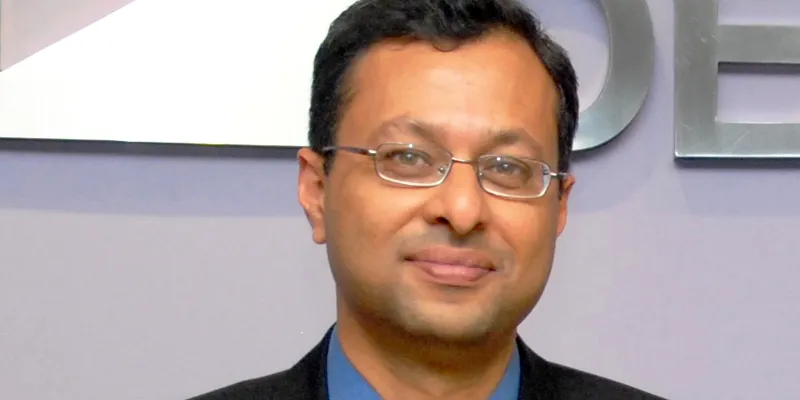Global corp Analog Devices is calling all startups to stir it up for innovation from India
Every now and then, it is good to ruffle some feathers and change the way things are done. Analog Devices – a $3.5 billion global enterprise – which specialises in mixed signal and analog integrated circuits, has decided to go all out to find startups and engineers or hobbyists who can bring the company ideas for the future of IoT or Internet-of-Things. The growing startup ecosystem has made Corporates look beyond Universities for innovation because University projects were limited to scouting talent.
Many global companies are looking innovation from startups and are making it part of their corporate DNA. Some of the companies that have already worked with startups in India include Target, Lowe’s, SAP Labs, Mindtree, Infosys, and Wipro. Each of these companies have actively gone and acquired or worked with startups. Target has already worked with 15 startups and has doled out vendor agreements to a couple of startups working to create in-store experiences. Infosys has acquired companies like Skava and Panaya to enable their digital business. Lowe’s, another global retailer, has already set up a centre here in Bengaluru to work with startups.
Analog Devices has always gone to Universities and mentored students. But the company believes that to capture ideas for innovation in the IoT domain, it has to work with startups. It wants to pick the best of these startup ideas and take them to the street for funding. The company will mentor these startups for eight months and help them scale up their intellectual property. “I want quality ideas. These should merge the best of hardware and software to create services in the engineering domain,” says Somshubro Pal Choudhury, MD of Analog Devices India. He adds that the applications can be anything as long as engineers bring in ideas that can reduce the cost of power consumption and recalibrate low-cost chips to perform a function.

Why is Analog Devices doing this?
The Analog Devices team predicts a blurring of lines between consumer and enterprise technology. There is simply going to be an explosion of devices by 2020. Gartner predicts that there will be 6.4 billion connected things by the end of 2016, and this will reach 20.8 billion by 2020. The consulting and research firm also says in a report that $235 billion will be spent on enterprise and consumer IoT by the end of 2016. However, the challenge is to bring costs down and make software the business for devices. Today, connected devices consume a lot of power because Bluetooth and Wi-Fi are sending every millisecond of data to the cloud or the datacenter, which is increasing infrastructure and maintenance costs. To ameliorate these functions, Analog Devices wants to focus on creating software, on the device, which can make important calculations on the device itself and only send relevant data to the datacenter. To illustrate this with an example, a smart city security camera captures 10 TB a day.
All this data goes to the remote datacenter. If the camera could only send event based data, this would mean that the camera hardware needs software that can understand what events are really important to be captured. Or say a wearable device today sends every bit of information during an activity to the consumer app on the smartphone. Both smartphone and the wearable device consume a lot of bandwidth and reduce battery life. What if an algorithm on the device calculates the total steps or activity without sending every piece of information to the app and the database of the corporate on a real-time basis? This is what Analog Devices is working on. It aims to:
- Reduce power consumption.
- Create algorithms that work on devices and reduce database costs
- Increase the intelligence in devices while calculating analog parameters like sight, sound, smells, heat, water, sweat, pulse rates, and more
- Bring costs down
- Focus on video and audio analytics
- Find ideas in all verticals ranging from agriculture to food processing to automobile and energy industries
“We are an organisation that spends 20 per cent of our revenues on R&D, and it is time we also looked for ideas from startups,” says Somshubro. He adds that, globally, 50 per cent of the innovation was coming from startups, and that ignoring ideas in India would not be good for any organisation. There are close to 500 IoT startups in India with at least 100 of them commercialising their ideas.
This Analog Devices programme, to find startups, is called Anveshan, but it has been a student-only programme so far. From this platform have emerged two notable ideas that are going in to startup mode; one from IIT-Mumbai and R V College of Engineering. The former created a device that could track a baby’s heartbeat during pregnancy while the latter created a platform that could run a bionic arm.







